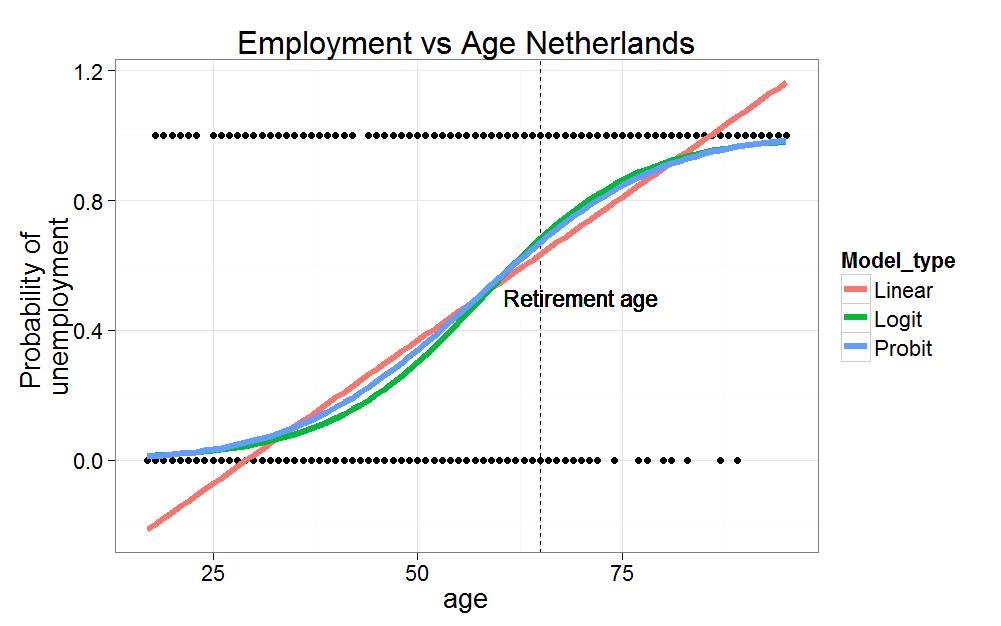I am conducting a meta-analysis and I am extracting pearson's correlation coefficient (r) from studies in order to meta-analyse them. Some studies have not used correlations so I am having to calculate r from the statistics they report. One study has reported a logistic regression, is it meaningful to squareroot r2 to get r, or should I convert the odds ratio to cohen's d and then cohen's d to pearson's r?
-
2$\begingroup$ Which square root will you choose: the positive or negative one?? $\endgroup$– whuber ♦Commented Feb 15, 2018 at 20:29
-
$\begingroup$ The conversion from OR to d is fairly well established so I think that route would be preferred. $\endgroup$– mdeweyCommented Feb 16, 2018 at 15:30
1 Answer
As you can probably tell from Whuber's comment, the short answer is no.
The relation between $R^2$ and pearson's correlation coefficient only exists for linear regression, and can then only be used the other way around (from Pearson's $r$ to $R^2$) because you wouldn't know whether you'd have to pick the positive or negative root and hence whether it is an upward or downward sloping line. Unless of course you have the coefficients of the regression themselves.
At a more fundamental level there is no such thing as "the $R^2$" of a logistic regression. The reason is that whereas in linear regression we use ordinary least squares to estimate the equation of interest, in logistic regression we use maximum-likelihood.
Least squares estimation generates a sum of squares of the model and a sum of squares of residuals, which have strong relations with the variance and covariance of your variables. These relationships in turn generate the relation between Pearson's $r$ and the $R^2$.
Maximum-likelihood does not generate sums of squares, it generates a likelihood. This likelihood is often used to generate a number that looks like and works a bit like an $R^2$, but it is something fundamentally different. They are officially called Pseudo $R^2$'s. In fact, there is not a single one, but multiple possibilities to calculate a Pseudo $R^2$ for logistic regression. Some examples include Mc-Fadden's $R^2$, Nagelkerke's $R^2$ or the Count $R^2$. For an overview of how these are calculated, see here. It usually involves comparing the likelihood of your full model with that of a simple model that has no predictors, or, as in the case of the count $R^2$, the number of correct predictions.
I am no expert in meta-analysis, but before you turn to your other proposed method (from odds-ratio to Cohen's d to r), I'd like to warn you that I am not so sure whether that really has the desired effect. A logistic model is something completely different than a linear model as you can tell from the graph below showing a logistic, probit and linear model (modeling the probability of unemployment depending on age in the Netherlands). The conversion from logit to linear via Cohen's D, to me, seems a conversion too far.
 Linear, logistic and probit model Probability of Unemployment versus Age in the Netherlands. Data: European Value Survey 2008.
Linear, logistic and probit model Probability of Unemployment versus Age in the Netherlands. Data: European Value Survey 2008.
-
$\begingroup$ Would it be preferable to extract odds ratios as the common effect size for the meta-analysis instead, which would involve (for some of the studies) converting pearson's r to odds ratio? Or does it essentially come down to the same problem again, that they have used fundamentally different analyses, so it is meaningless to try and convert between the two? $\endgroup$– BobbyCommented Feb 16, 2018 at 19:20
-
$\begingroup$ I fear it would be the same problem, but I'm no expert. Your best shot is posting that as a separate question here on CV. Or look around for other meta analyses that include both. It's unlikely that you're the first that runs into the problem. $\endgroup$ Commented Feb 16, 2018 at 19:48
